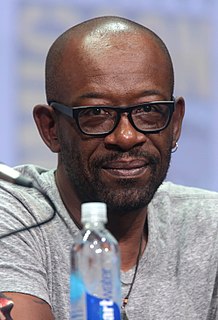A Quote by John Densmore
Being a writer is a very difficult craft. Just like learning an instrument, it takes a long time and I couldn't really say I was a writer even after my first memoir.
Related Quotes
Right now in American writing there is no genre as exciting as memoir - the writer can do anything, as long as it works. It's like the 1920s up in this joint. So, I'd say, experiment with how you tell the story. In the best memoir it's not the what, it's how the writer tells the what - meaning and effect through form.
Here I come to one of the memoir writer's difficulties -- one of the reasons why, though I read so many, so many are failures. They leave out the person to whom things happened. The reason is that it is so difficult to describe any human being. So they say: 'This is what happened'; but they do not say what the person was like to whom it happened. And the events mean very little unless we know first to whom they happened.
Often, you have to fail as a writer before you write that bestselling novel or ground-breaking memoir. If you're failing as a writer - which it definitely feels like when you're struggling to write regularly or can't seem to earn a living as a freelance writer - maybe you need to take a long-term perspective.
Oh, I love labels, as long as they are numerous. I'm an American writer. I'm a Nigerian writer. I'm a Nigerian American writer. I'm an African writer. I'm a Yoruba writer. I'm an African American writer. I'm a writer who's been strongly influenced by European precedents. I'm a writer who feels very close to literary practice in India - which I go to quite often - and to writers over there.
I was writing at a really young age, but it took me a long time to be brave enough to become a published writer, or to try to become a published writer. It's a very public way to fail. And I was kind of scared, so I started out as a ghost writer, and I wrote for other series, like Disney 'Aladdin' and 'Sweet Valley' and books like that.
The WRITER of memoir gets incoming weirdness in very odd ways. I was recently talking to a memoir writer whose work just went meteoric - but some of the comments and communications and gestures she gets in the wake of that success are stunningly and atrociously over-personal, as if suddenly people feel like they know her and her life intimately, and have permission to transgress all her "life" boundaries.
I think the first thing - if you want to be a writer - the first thing you need to do is write. Which sounds like an obvious piece of advice. But so many people have this feeling they want to be a writer and they love to read but they don't actually write very much. The main part of being a writer, though, is being profoundly alone for hours on end, uninterrupted by email or friends or children or romantic partners and really sinking into the work and writing. That's how I write. That's how writing gets done.
I started writing when I was around 6. I say 'writing,' but it was really just making up stuff! I started writing and doing my own thing. I didn't really know what a demo was or anything like that, so I started getting interested in studio gear and started learning about one instrument at a time. My first instrument was an accordion.
Just write. If you have to make a choice, if you say, 'Oh well, I'm going to put the writing away until my children are grown,' then you don't really want to be a writer. If you want to be a writer, you do your writing... If you don't do it, you probably don't want to be a writer, you just want to have written and be famous—which is very different.
Many a young person tells me he wants to be a writer. I always encourage such people, but I also explain that there's a big difference between being a writer and writing. In most cases these individuals are dreaming of wealth and fame, not the long hours alone at the typewriter. You've got to want to write, I say to them, not want to be a writer. The reality is that writing is a lonely, private and poor-paying affair. For every writer kissed by fortune, there are thousands more whose longing is never requited. Even those who succeed often know long periods of neglect and poverty. I did.
On a more technical level, a story takes a lot of words. And to generate words and phrases and images and so on, that will compel the reader to continue reading - that stand a chance of really grabbing a reader - the writer has to work out of a place of, let's say, familiarity and affection. The matrix of the story has to be made out of stuff the writer really knows about and likes. The writer can't be stretching and (purely) inventing all the time. Well, I can't, anyway.




































